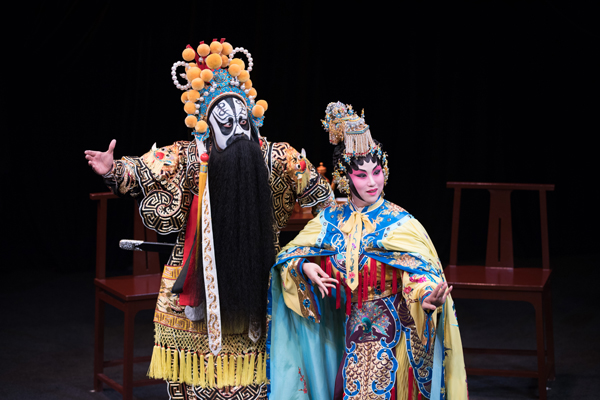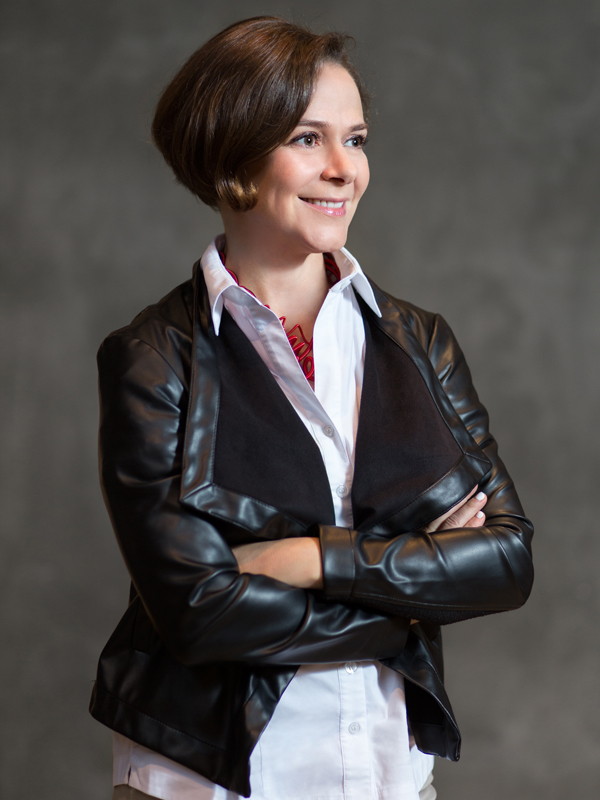RESOURCES
2018-05-07 Source:China Daily

Keith Lai (left) plays Xiang Yu and Janet Wong plays Yu Ji in Cantonese Opera Farewell My Concubine, the first commissioned production of Xiqu Center, part of the West Kowloon Cultural District in Hong Kong. [Photo provided to China Daily]
A world-class venue dedicated to promoting the rich heritage of Chinese opera is nearing completion in Hong Kong. Chen Nan reports.
Each time Louis Yu passes the construction site of the West Kowloon Cultural District, one of the world's largest cultural developments currently being built, he is thrilled.
As the performing arts executive director of WKCD, he has been involved in the project for the past eight years.
By the end of the year, the Xiqu Center-a new flagship destination for traditional Chinese theater-is expected to be launched as part of the WKCD, which is located on Hong Kong's Victoria Harbour.
"When most of us think of Hong Kong, we think of a metropolis of gleaming skyscrapers, bustling crowds and an open society embracing different cultures. But I always feel proud of the city's traditional art form, Cantonese Opera," Yu says in Beijing recently. "Cantonese Opera has a large fan base in Hong Kong, mostly popular among elderly people. Amateurs usually gather together to perform the opera as entertainment. With the opening of Xiqu Center, we want to attract not just fans of Cantonese Opera but also people who are not familiar with the art form, especially young people."

Louis Yu, performing arts executive director, WKCD [Photo provided to China Daily]
Designed to be a world-class platform for promoting and developing Cantonese Opera, a popular old art form of the Cantonese-speaking regions of the country, and other genres of traditional opera forms, such as Peking Opera and Kunqu Opera, the lantern-like designed Xiqu Center will feature a grand theater with over 1,000 seats, a Tea House Theatre with a maximum capacity of 200 seats, and multiple workshop and rehearsal facilities to encourage participation from established artists and the next generation of performers.
The first original Cantonese Opera production commissioned for the Xiqu Center, titled Farewell My Concubine, was staged over April 20-21 at the Tianqiao Performing Arts Center in Beijing as part of the Spring For Chinese Arts event, an annual festival organized by the cultural institution.
The show, featuring young Hong Kong-based Cantonese Opera performers, including Keith Lai as Xiang Yu and Janet Wong as Yu Ji, is adapted from a classic story set against the backdrop of the Chu-Han Contention, a civil war that followed the collapse of the Qin Dynasty (206-202 BC). In the story, Xiang Yu, a warlord of the short-lived Chu Kingdom, falls to the rival forces of Liu Bang, the founder and first emperor of the Han Dynasty (206 BC-AD 24). And, then, Xiang Yu and his beloved concubine Yu Ji meet for the last time. The show, combining traditional Cantonese Opera techniques with contemporary stage and lighting design, serving as a showcase for Cantonese Opera.
According to Yu, like many traditional Chinese art forms, Cantonese Opera had previously endured a long period of decline, but thanks to the government investment, the art form has recently enjoyed a revival, especially after being listed as an intangible heritage by UNESCO in 2009, which led the local government to help promote and preserve it.
"We have recruited Cantonese Opera actors and actresses to join the opera troupe of the Xiqu Center. The team, which consists of 30 young people, is capable of experimenting with their new ideas about the art form," says Yu, adding that he expects to work with opera troupes from the mainland and launch exchange programs in the form of forums, workshops and master classes.

Alison M. Friedman, artistic director, performing arts, WKCD [Photo provided to China Daily]
"Looking at the big cities like New York, London and Paris, they all have iconic performing arts centers. WKCD will open a new chapter for Hong Kong as a global and regional leader in the performing arts, being a catalyst for creating, producing, learning, performing and celebrating all forms of performing arts," says Alison M. Friedman, who is the artistic director of performing arts at WKCD.
Having lived in Beijing for the past 15 years, Friedman moved to Hong Kong to join the cultural hub team in November.
As construction of the major venues moves closer to completion, the West Kowloon Cultural District Authority has started playing an active role in developing Hong Kong's arts and cultural industries, nurturing local talent and the growing audience to further strengthen Hong Kong's position as a burgeoning hub for the arts and culture.
Yu says that WKCD will establish a vibrant new cultural quarter stretching across 40 hectares of reclaimed land on a harbor-front site in the heart of Hong Kong.
After the opening of the Xiqu Center, the next major venue to open will be Freespace in 2019, a place where the public will be invited to explore, encounter and be inspired by new artistic experiences through innovative programs of different genres. The Freespace building will provide flexible performance spaces, including a black-box theater for audiences of up to 900, a multipurpose function hall and facilities for small-scale live music events. The building of M+, Hong Kong's new museum for visual culture, is also expected to be completed in 2019.
In 2016, WKCD expanded its global network by joining the Silk Road International League of Theaters. The network serves as a platform for the performing arts and aims to promote cultural exchanges between China and other countries. A total of 86 theaters from 32 countries and regions have joined the league.